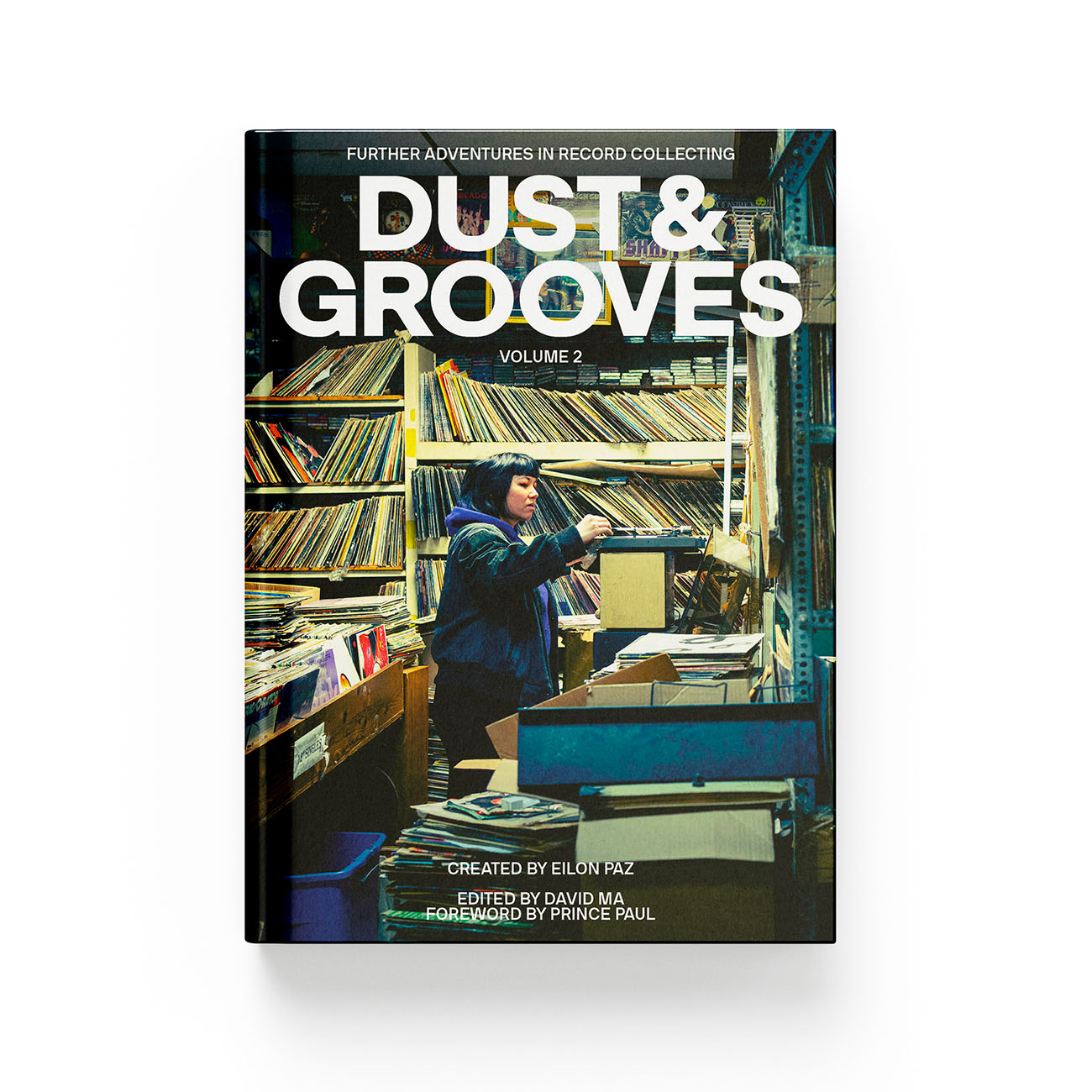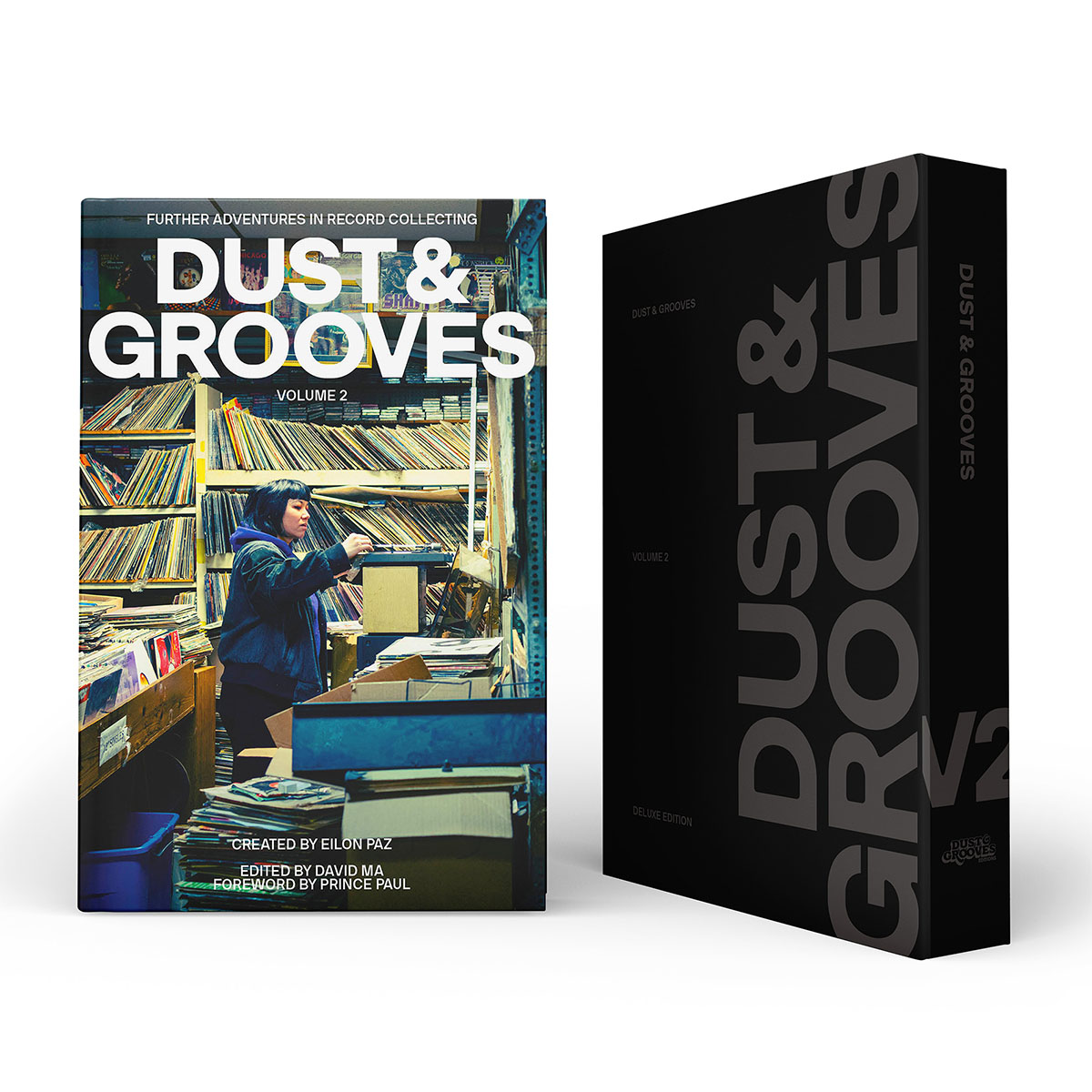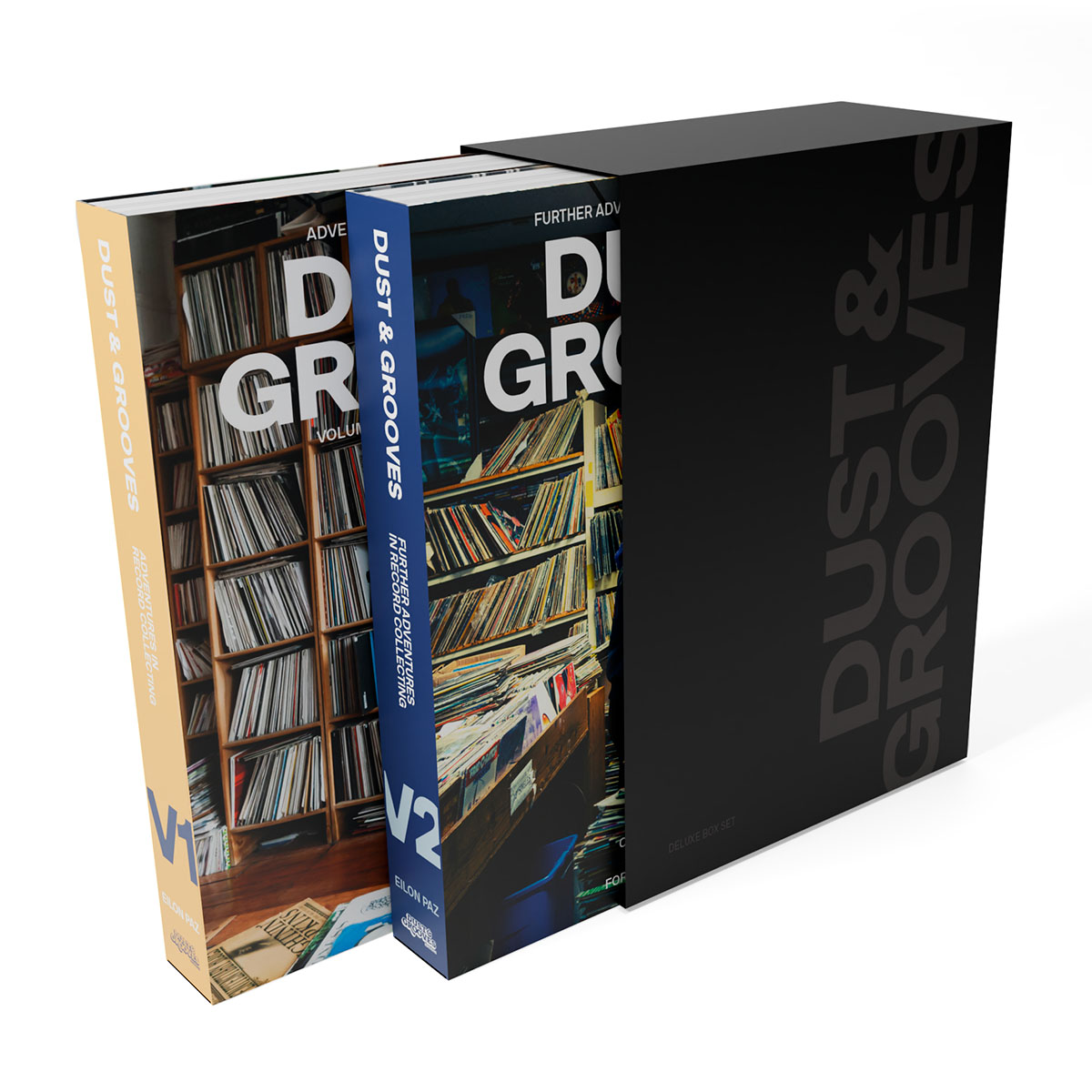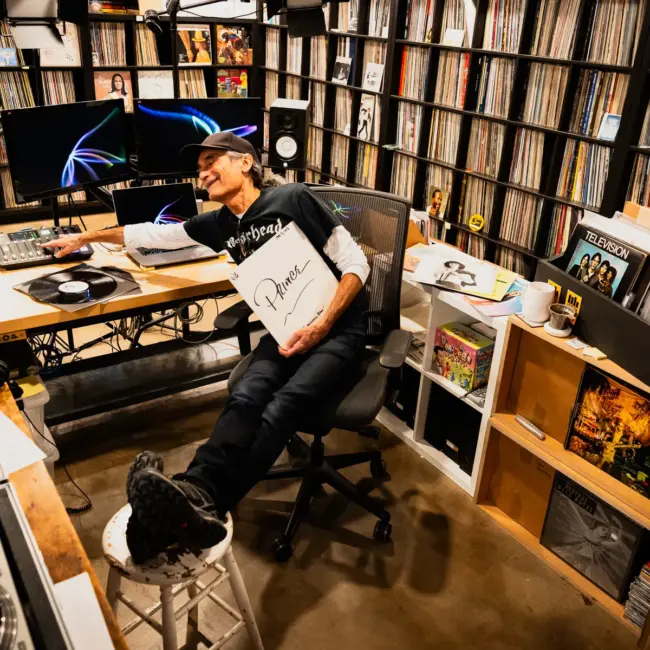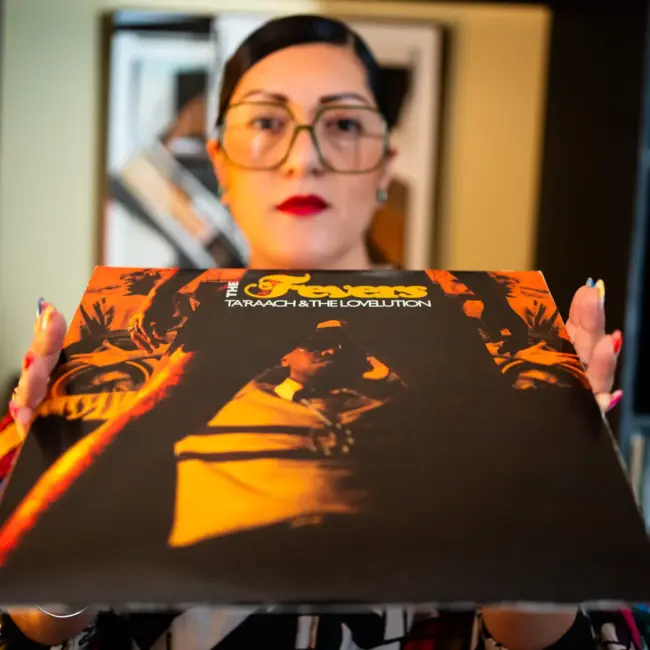São Paulo’s Rafa Jazz has become a ubiquitous force on the capital city’s scene in recent years. As a shop owner, label boss, radio personality, heavy-weight vinyl junkie, and purveyor of some of the creamiest sounds in town, what drew her to the world of wax began as a way to procure the jazz music she loved in an affordable format.
These days, vinyl represents much more to Rafa than just a preferred format: “Vinyl for me is more than a medium. In addition to the music, I see the record as an object that can connect people and awaken many emotions.”
Rafa has been a ponte (bridge in Portuguese), stringing up a network that traverses the city, connecting the dots between lo-fi beat producers, house heads, disco deviants, and fellow vinyl addicts, all while pushing other women to the forefront.
Rafa and her crew’s Cremosa sound first gained attention on the newly launched Dublab Brasil in 2019. Loyal listeners tuned in, consistently impressed by her impeccable taste, deep crates, and knack for programming her selections with on-point mixing and transitions.
Despite knowing and loving her sound, I knew very little about the person behind the decks. Sitting down for a chat with the multi-dimensional and indefatigable Rafa Jazz was an absolute pleasure.
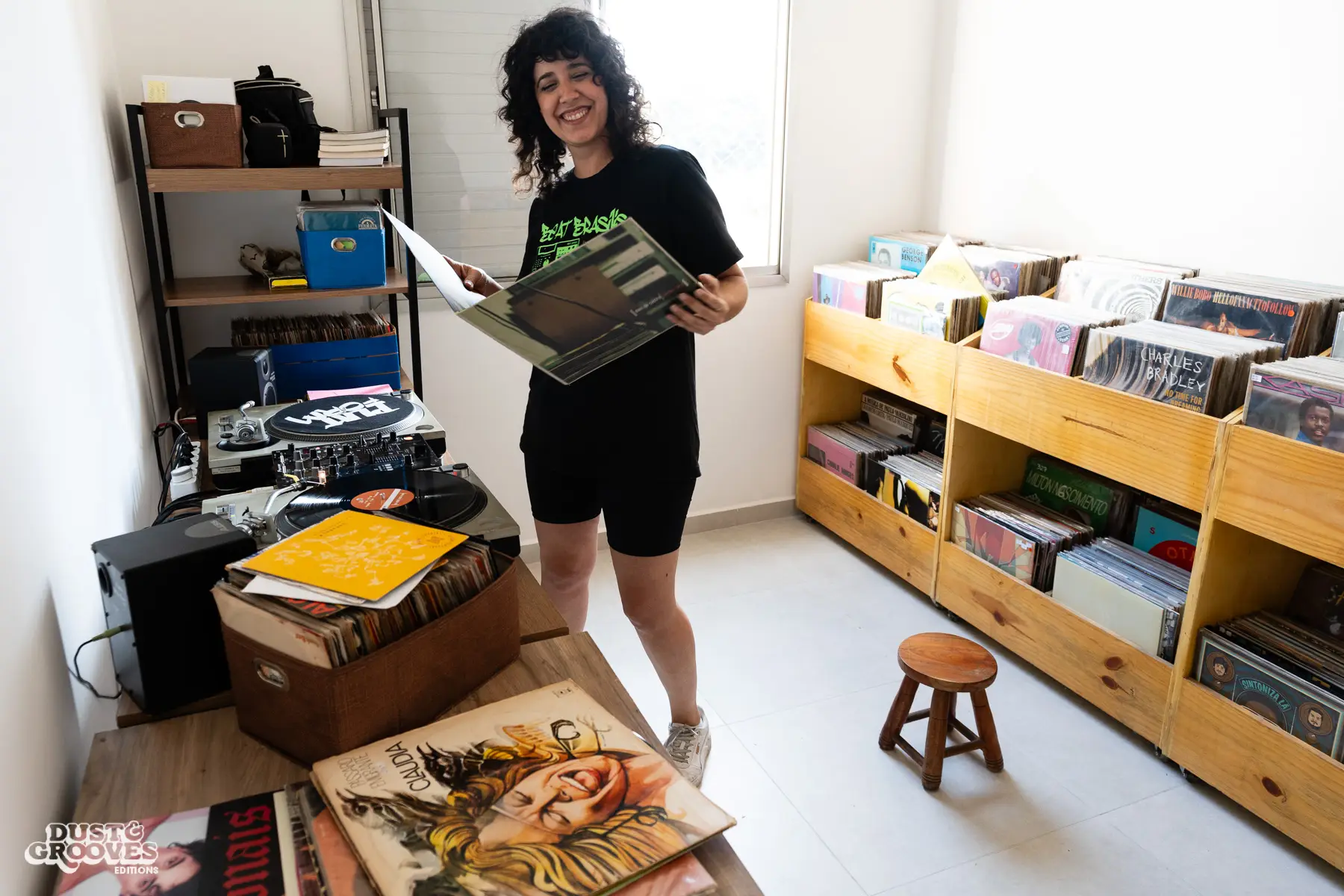
“I really love listening to contemporary Brazilian music. I think it's important to listen to the artists of my time and to hear what they have to say… Today's new releases will become tomorrow's rarities!”
Rafa Jazz Tweet
Can you please introduce yourself and tell us where you’re from?
My name is Rafa Jazz, and I was born in the city of São Paulo, Brazil. I’m a DJ, digger, and researcher—I have a strong reverence for Black music, mixing in boogie, funk, disco, house, and jazz in my sets. I’m involved in various projects like Cremosa Vinil and Beat Brasilis, and I’m a resident DJ at Seen São Paulo.
What kind of music did you grow up around?
My father listened to rock, so I often heard records by The Rolling Stones, Led Zeppelin, Creedence Clearwater Revival, and AC/DC. My mother was more eclectic. She listened to Brazilian music like Rita Lee, some rock like The Beatles, some pop like Enigma and Roxette, and of course, the soundtracks to novelas, which always had a little of everything.
There was also Mazé, a wonderful person who worked in my parents’ house when I was a child. She watched me grow up until I was a teenager, and I have great affection for her. Mazé exposed me to more popular sounds of that time: lambadas, pagodes, sertaneja, and romantic music—the kind of music played on the radio. My brother and I had some things we liked to play, like Xuxa and soundtracks for cartoons like The Simpsons. I also had fun messing around with the stereo equipment, putting my records on in the living room, and recording songs on tapes that played on the radio.
How did you fall in love with vinyl? Was there anyone who inspired you on your way to becoming a collector?
What inspired my love for vinyl at first was my interest in jazz. I started listening to it when I was about fifteen or sixteen years old—my older brother introduced me to Charles Mingus, and my first boyfriend introduced me to Billie Holiday. I thought it was beautiful. I wanted to listen to more of it, but jazz CDs were absurdly expensive in Brazil then. The solution was to start frequenting the sebos [second-hand book and record shops common in Brazil] downtown looking for records.
A little later, I started to get involved as a DJ. I always ended up becoming friends with the DJs at the places I’d go out so that I could learn more about the music. Two factors were important to me when I began to build my record collection. The first was finding records to play as a DJ, and the second was the influence of Casa Brasilis opening. The extra factor is being married to Bob G, who is a DJ and record collector as well.
“As a beatmaker, the records I sample are very different from the records I play as a DJ…The origins of the sample don't matter to me. It's more the vibe that counts.”
Rafa Jazz Tweet
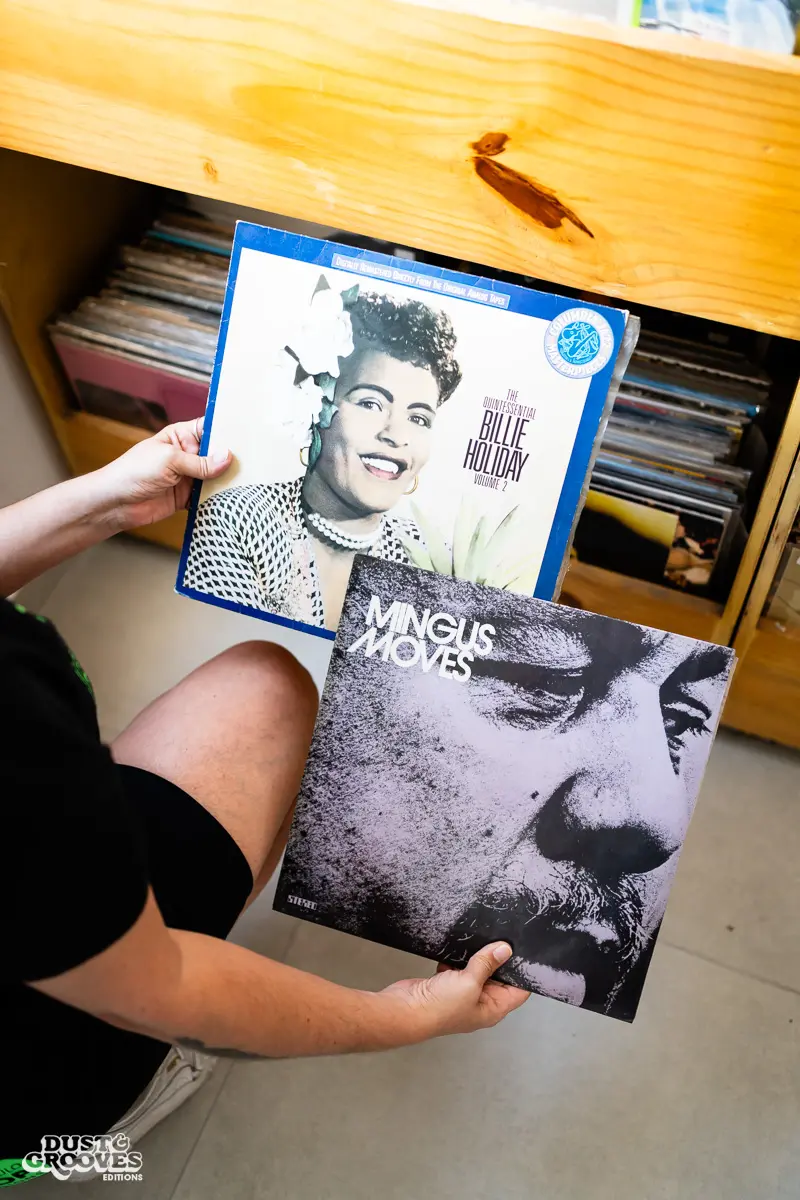
Bob G also introduced you to Antonio Adolfo and Claudia; tell me about them.
I discovered Claudia’s music through Bob G. When I listened to this album for the first time, Claudia’s powerful voice sent shivers down my spine. Pássaro Emigrante is the perfect example of what Claudia’s ear can make.
Antonio Adolfo is a brilliant pianist and another gem of Brazilian music that Bob G introduced me to. He has countless wonderful albums, but among them, the story behind the production of the album Feito Em Casa stands out. It’s a pivotal moment in Brazilian independent music.
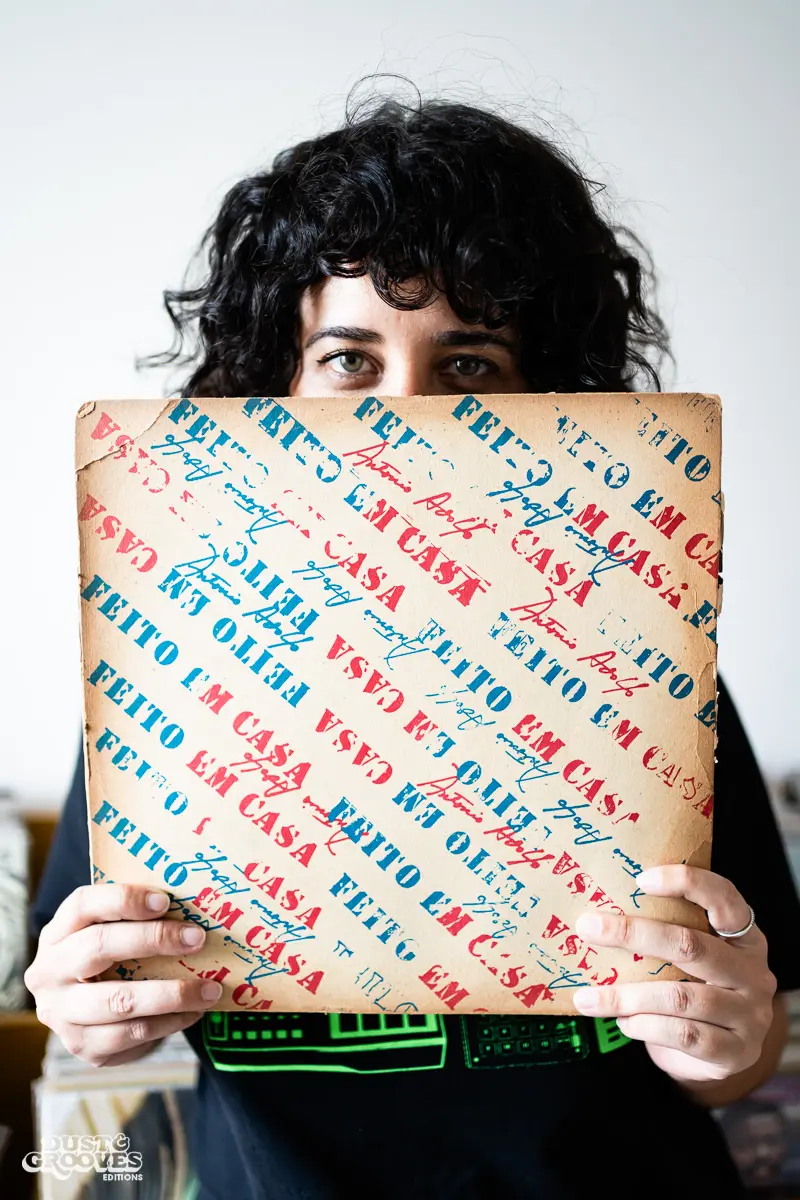
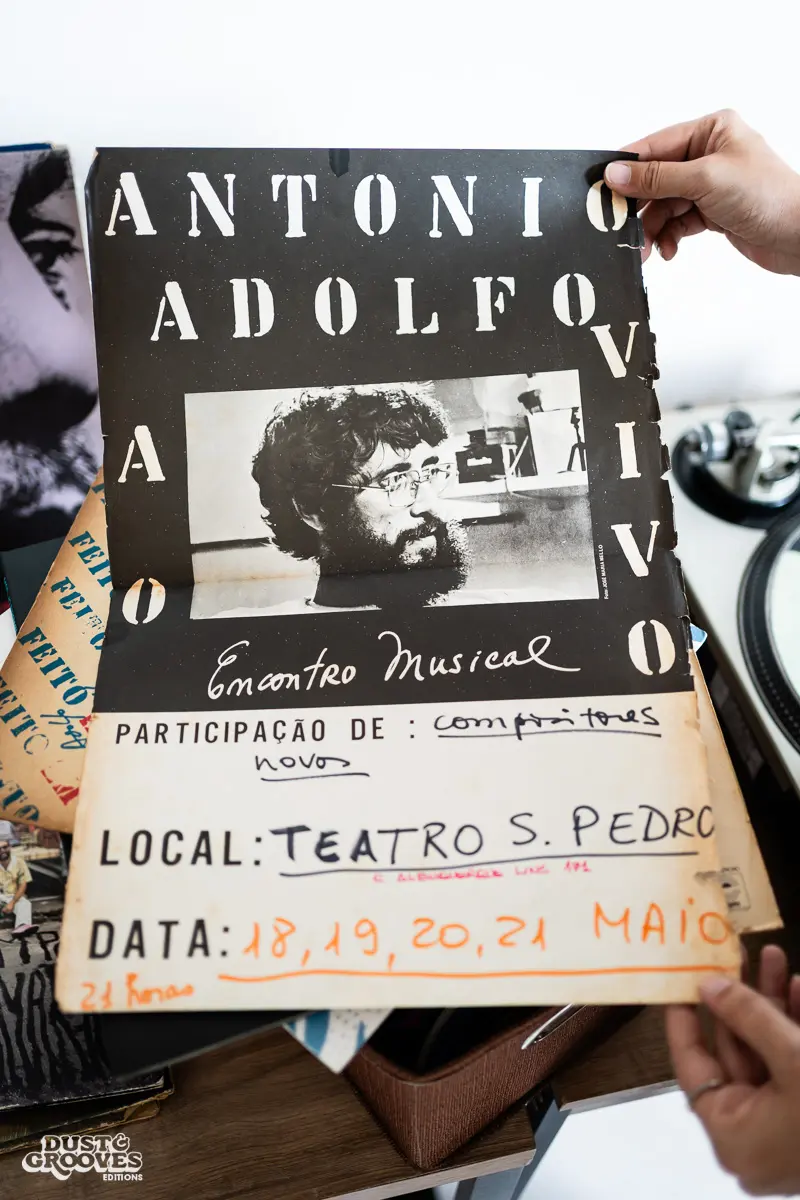
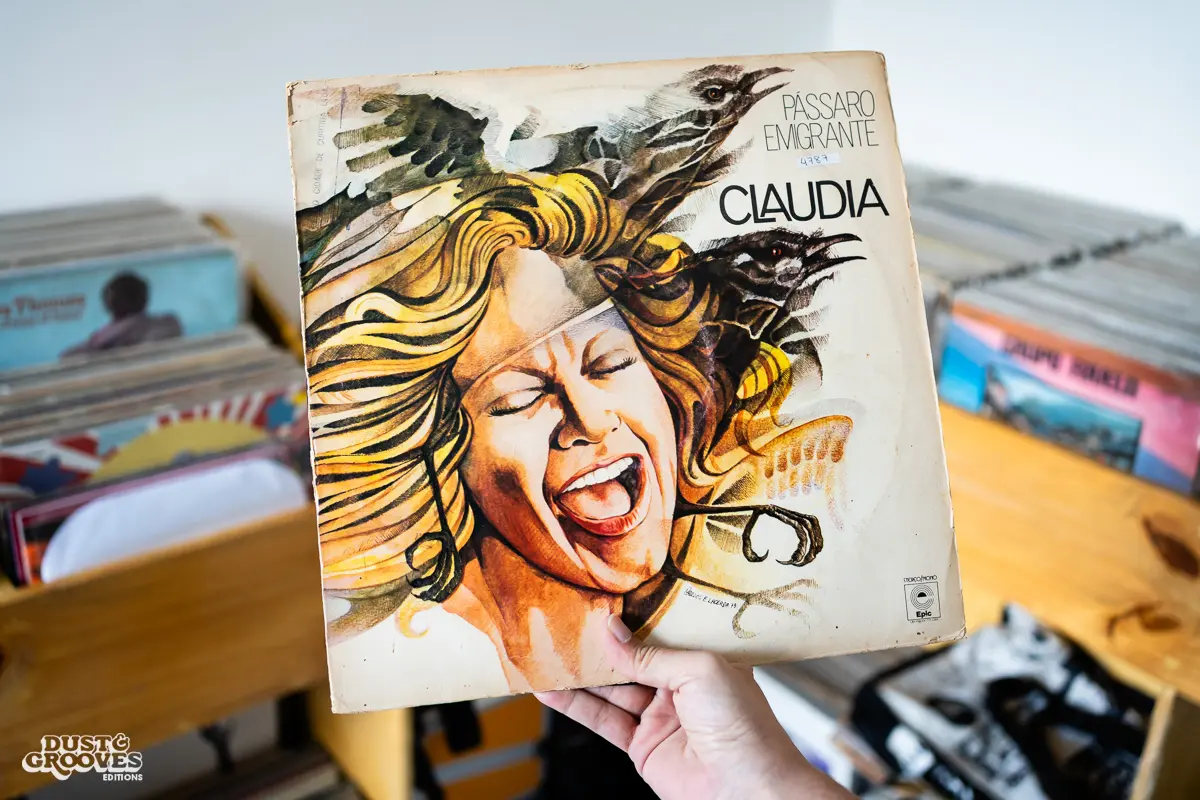
How old were you when you started buying your own records?
I’ve been buying records since I was seventeen, but the arrival of Casa Brasilis and starting to DJ made me dedicate myself to collecting.
Tell me more about Casa Brasilis and the Beat Brasilis project. What’s the story there?
Casa Brasilis is a record store and cultural space I developed with my partner Bob G. The idea was to curate a unique selection of records in a welcoming environment that would leave the customer free to try different sounds. The store was a spin-off of our Brasilis Grooves label, which focused on re-releasing great classics of Brazilian music and other recordings that had never been released on vinyl. Our first release was the album Di Melo in 2011.
In 2014, we opened Casa Brasilis near the Sumaré metro station—it was a space dedicated to vinyl culture and hosted events, courses, and record-cutting services. There, we had the opportunity to develop interesting projects and foster creative collectives.
In this special place, the Beat Brasilis project was born. We created it as a meeting point where beat makers, producers, and DJs would challenge themselves to each produce a beat using the same record. Every week, we’d gather dozens of people to sample an album and create a beat of up to a minute and a half, all in one sitting.
Beat Brasilis has always been a place to exchange experiences and production techniques, improve and sharpen creativity, work collectively, and overcome any fear of performing in public. In short, it’s a place for artistic development through the beats. We even had the opportunity to create the first beat-based orchestra, the Beat Brasilis Orquestra, which held some live shows. We’d always invite contemporary artists to join us in giving a voice to classic themes.
Can you tell me about some of your Brazilian icons?
It’s impossible to listen to Fernanda Abreu and not enjoy her captivating and danceable sound. Her album SLA Radical Dance Disco Club is so important. She symbolizes innovation… a singer and songwriter with a marvelous ability to create timeless music.
I’m also in love with Anelis Assumpção’s work. I find it poetic and filled with humor and clever lyrics. On this particular album, she fully embraces her Jamaican influences. Right from the start of Amigos Imaginários, it invites you to immerse yourself in a universe rich with feminine and romantic themes.
Alcione is another one. She stands as one of the greatest voices in Brazilian music. Charismatic and full of groove, her albums are adorned with marvelous sambas. Morte De Um Poeta is the album of hers I always return to.
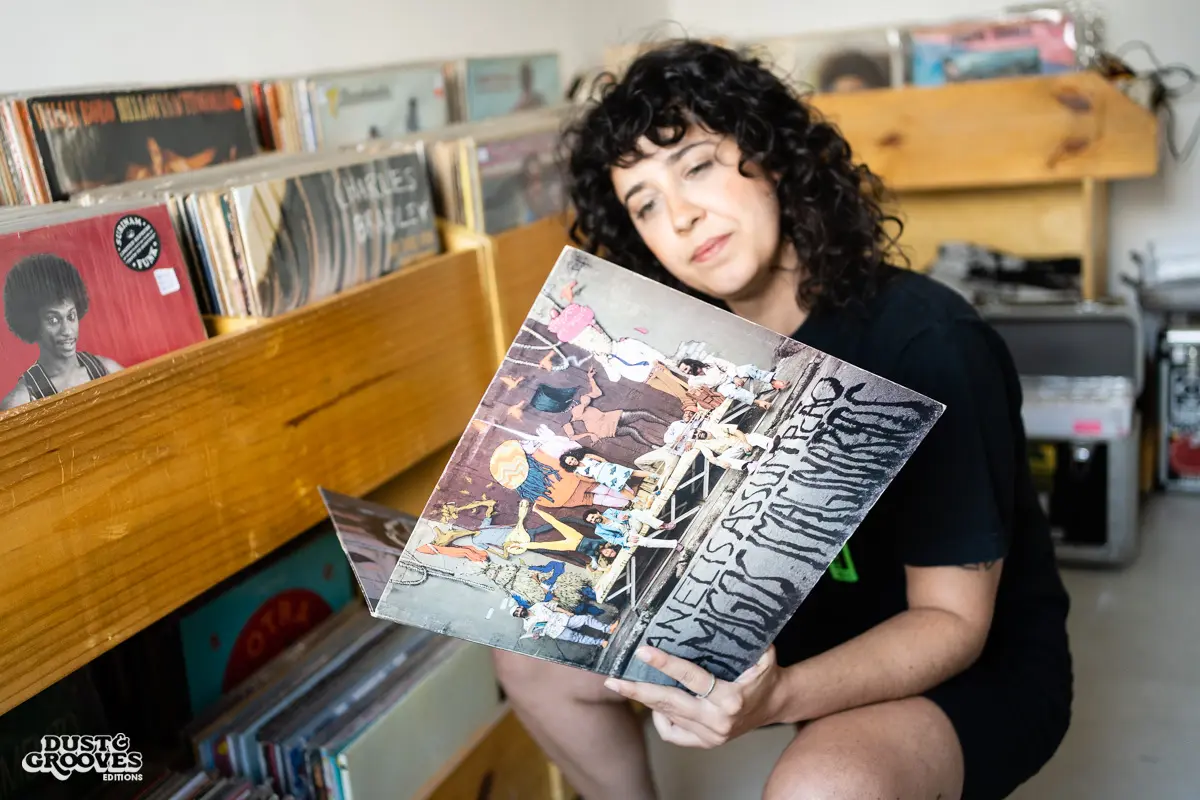
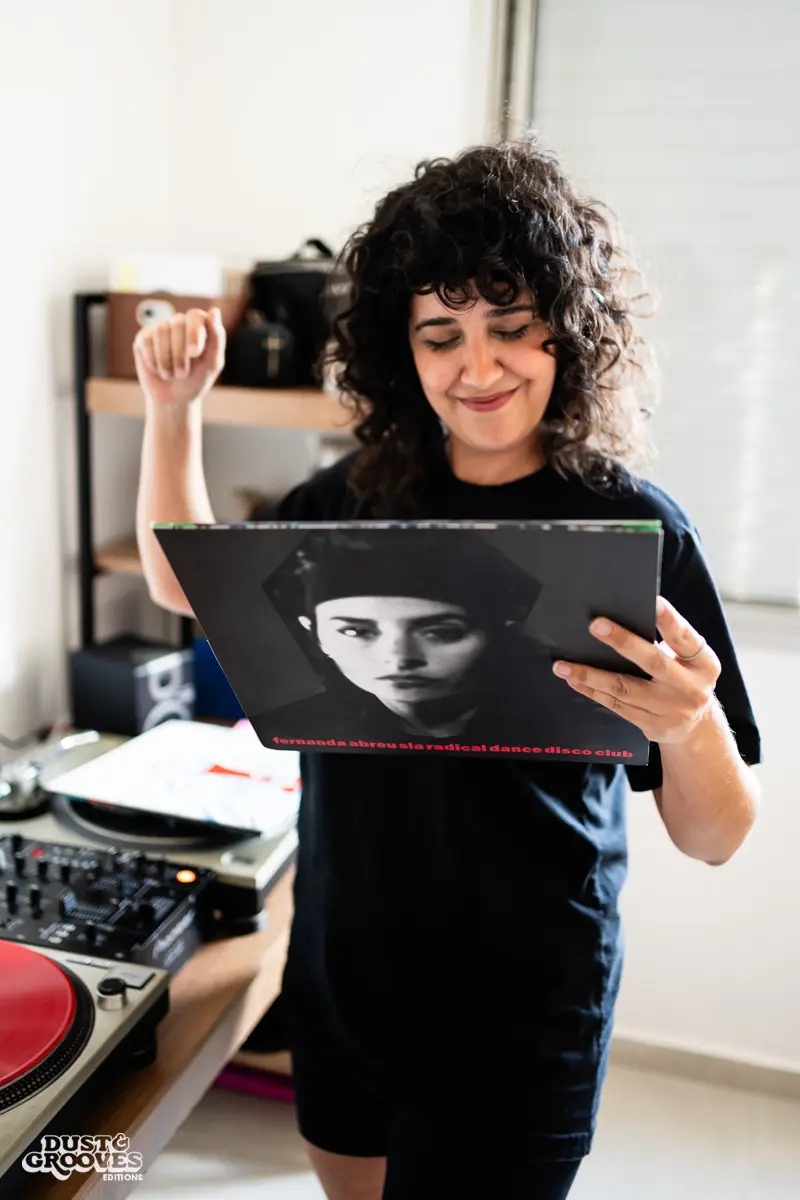
“It's impossible to listen to Fernanda Abreu and not enjoy her captivating and danceable sound. She symbolizes innovation... a singer and songwriter with a marvelous ability to create timeless music."
Rafa Jazz Tweet
I know that your passion for music goes far beyond the borders of Brazil. What styles of music are you currently seeking out?
Mostly, I’ve been looking for and researching a lot of boogie, disco, 1980s funk, and house–these are the styles I like to play the most.
You mentioned your involvement with Cremosa Vinil. Can you tell me a bit about the collective, what defines the Cremosa sound, and your radio show, Hora de Creme?
Cremosa [creamy in English] refers to the texture of the songs. It’s a synesthetic way to define the sounds we select. Our repertoire is focused on Black music, such as jazz, soul, funk, boogie, and disco. The songs all emphasize the bass line, a strong groove, and a certain dose of romanticism in the lyrics.
Cremosa Vinil was created in 2017 by Julia Weck, Laura Mercy, and myself. Our initial idea was to record sets made with a few songs on vinyl that normally didn’t get much play on the dance floor.
Things have changed after six years, so Julia and I are a duo now. We play for many dance floors in São Paulo and participate in several festivals. Our focus continues to be on that cremosa sound and finding danceable songs to keep the floor happy. Julia and I have a powerful synergy when playing and putting together our sets.
Hora Do Creme came about as a way for us to publicize our sound, showing that cremosa music spans different styles and genres. We’ve had a residency on two different radio stations. We started on Dublab Brasil and then later moved to Na Manteiga Rádio.
Many collectors tend to only focus on records from decades ago, but I know you also pay close attention to a lot of new music coming out of Brazil. Can you tell me about your relationship with new Brazilian music?
I really love listening to contemporary Brazilian music. I think it’s important to listen to the artists of my time and to hear what they have to say. There’s a lot of great production coming out of Brazil right now. Besides, today’s new releases will become tomorrow’s rarities!
The best part is that many labels are doing a great job of recording and releasing all these contemporary artists, like Tulipa Ruiz, Graveola, FBC e Vhoor, Luísa e Os Alquimistas, and BaianaSystem. Among these labels, I dig Vinyl Land Records, which have a lot of interesting releases in their catalog. Some subscription clubs, like Noize, send out a record each month and a magazine about that record; they also bring interesting new albums to the market, which is a good way to acquire current records at a fair price.
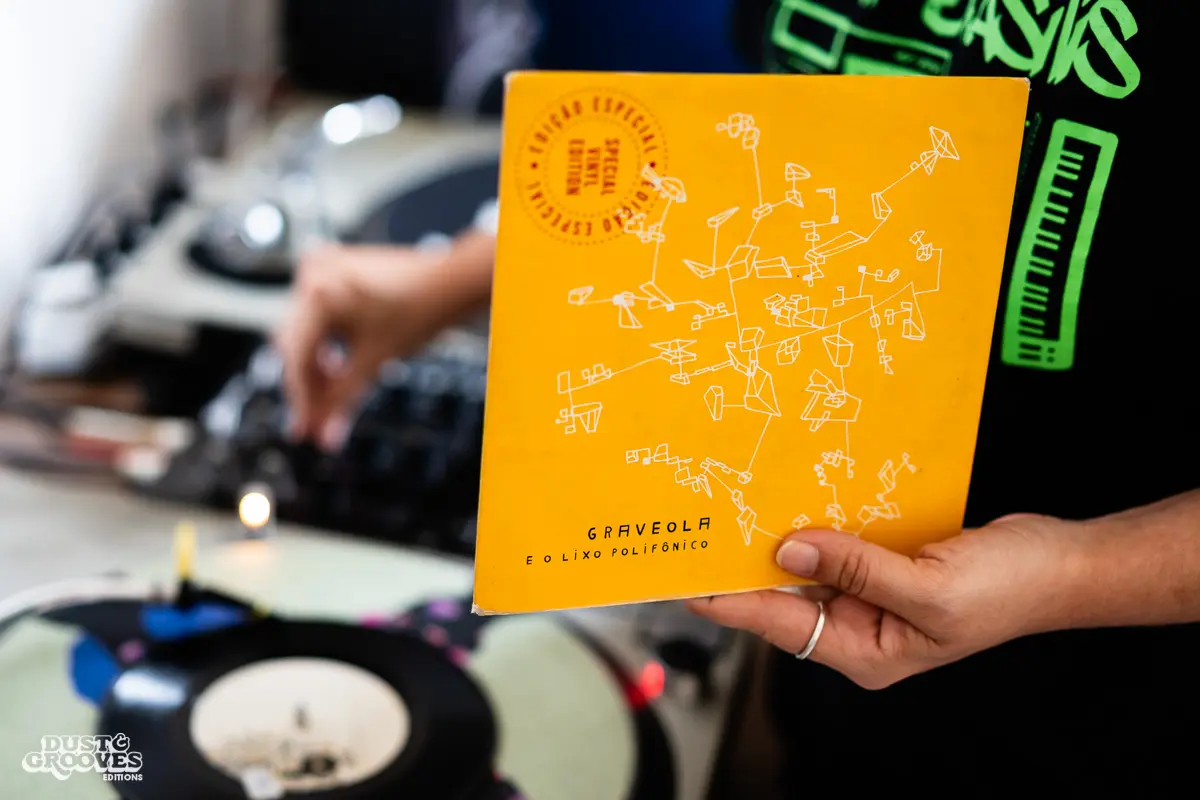
What modern records in your collection do you think tomorrow’s diggers will be looking for?
Many of these current Brazilian records are already well sought after. Albums like Orquestra Contemporânea de Olinda’s self-titled LP, released by Fábrica Estúdios in 2010, and Stereo Maracanã’s LP from 2002, Combatente on Mangaia Discos. Several of these releases started off somewhat rare since they were pressed in limited runs of 300 to 500 copies. Confraria das Sedutoras by 3 Na Massa, released in 2018 by Marafo Records, is another good one. Rosa Neon’s LP from 2019 is great. Some of these future classics are already in their second pressing, like the Brazilian hip-hop LP Baile, by FBC and VHOOR.
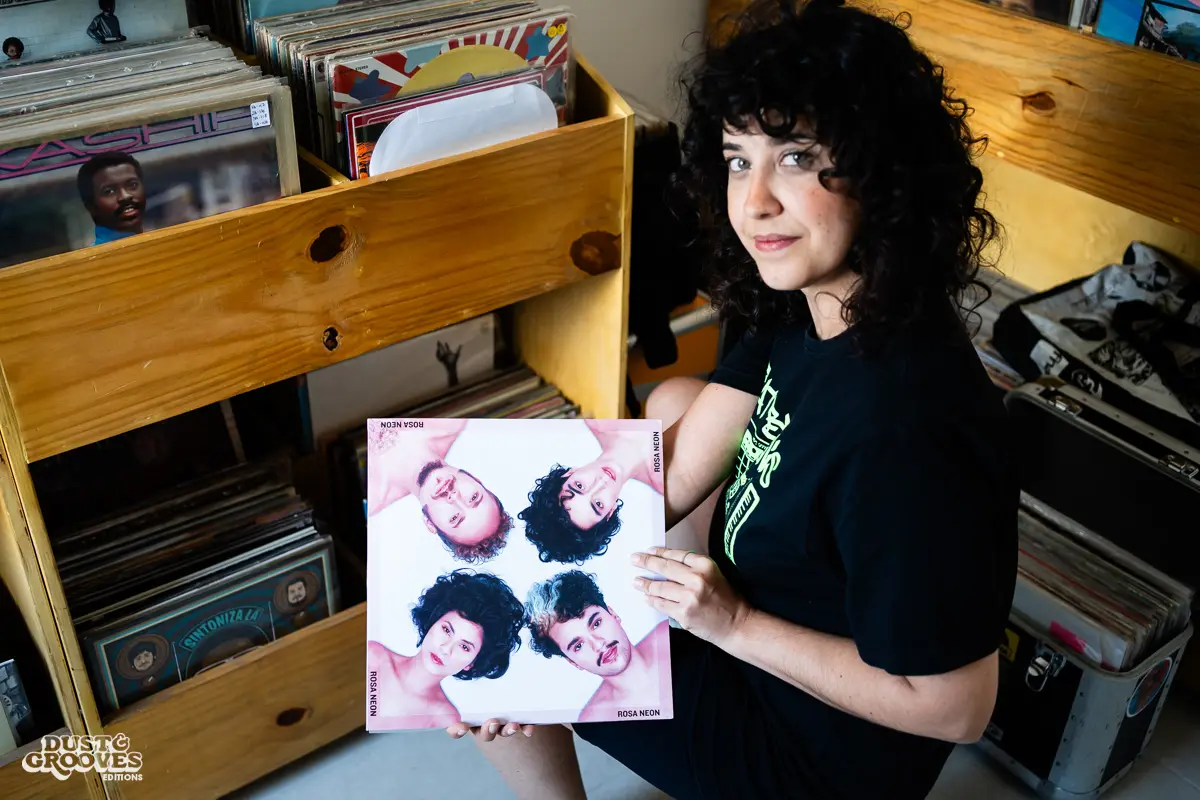
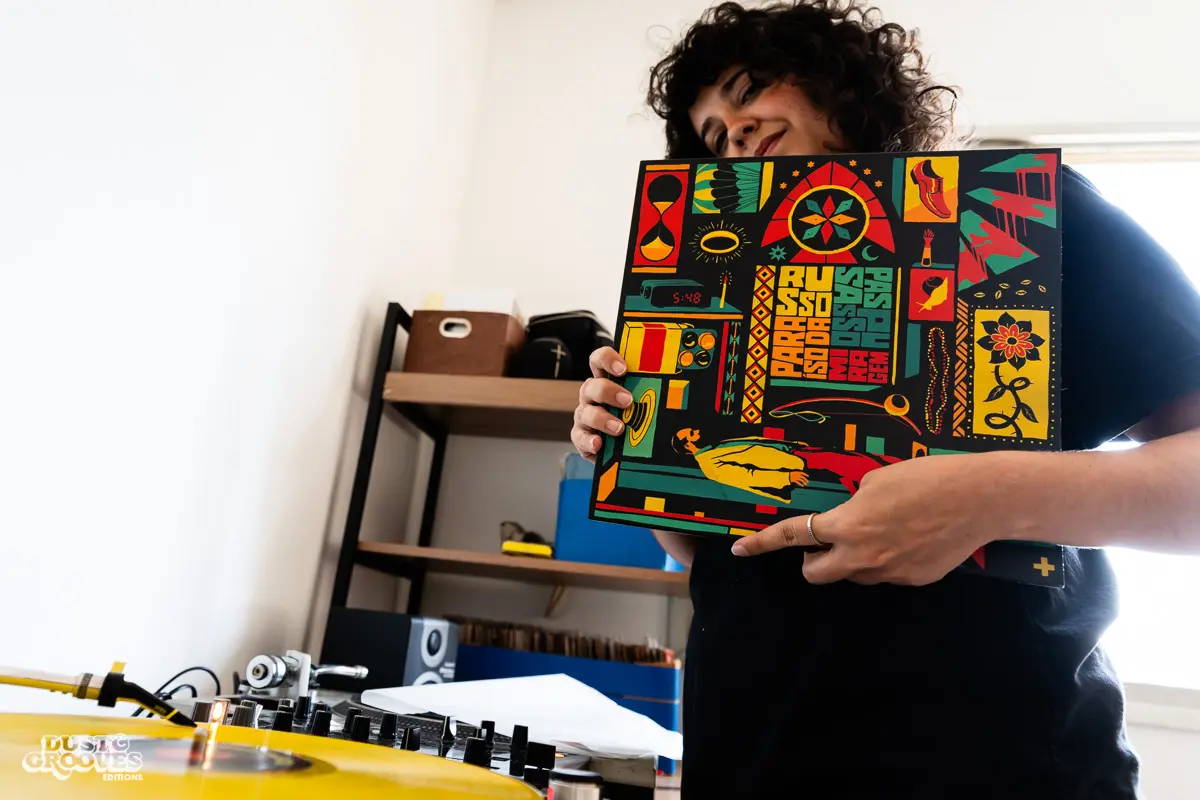
Did you listen to Brazilian hip-hop often?
I started listening to rap with my older brother when I was a kid. I didn’t understand most of the lyrics, but we sang them together. Racionais MC’s Sobrevivendo No Inferno impacted everyone living in São Paulo in the ‘90s because it was played everywhere. Directly or indirectly, because it was simply played everywhere… downtown, on the outskirts, by street vendors—you’d hear it booming out the speakers of passing cars.
Many of Racionais MC’s Mano Brown’s verses moved me emotionally, and the way he’d rhyme them was truly special. With much anticipation, I listened to his first solo album, Boogie Naipe. It’s essential for lovers of Black music, with its classic soul baile vibe.
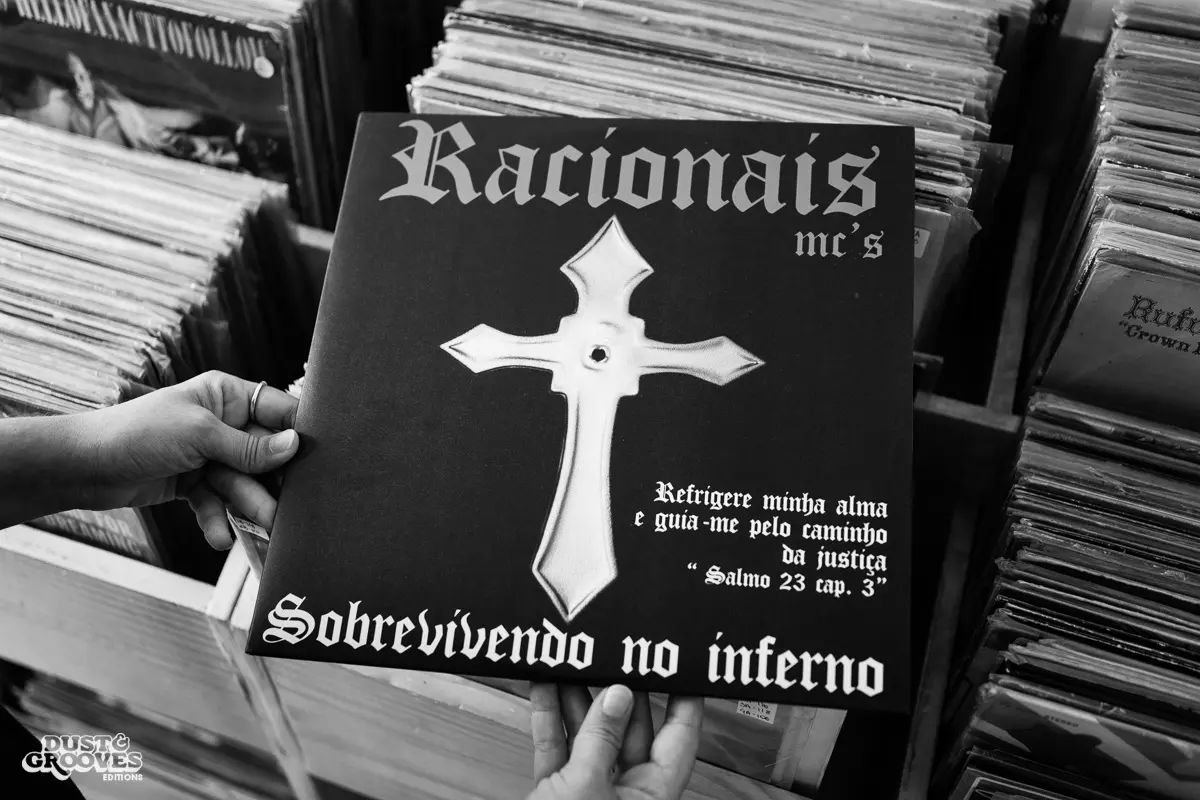
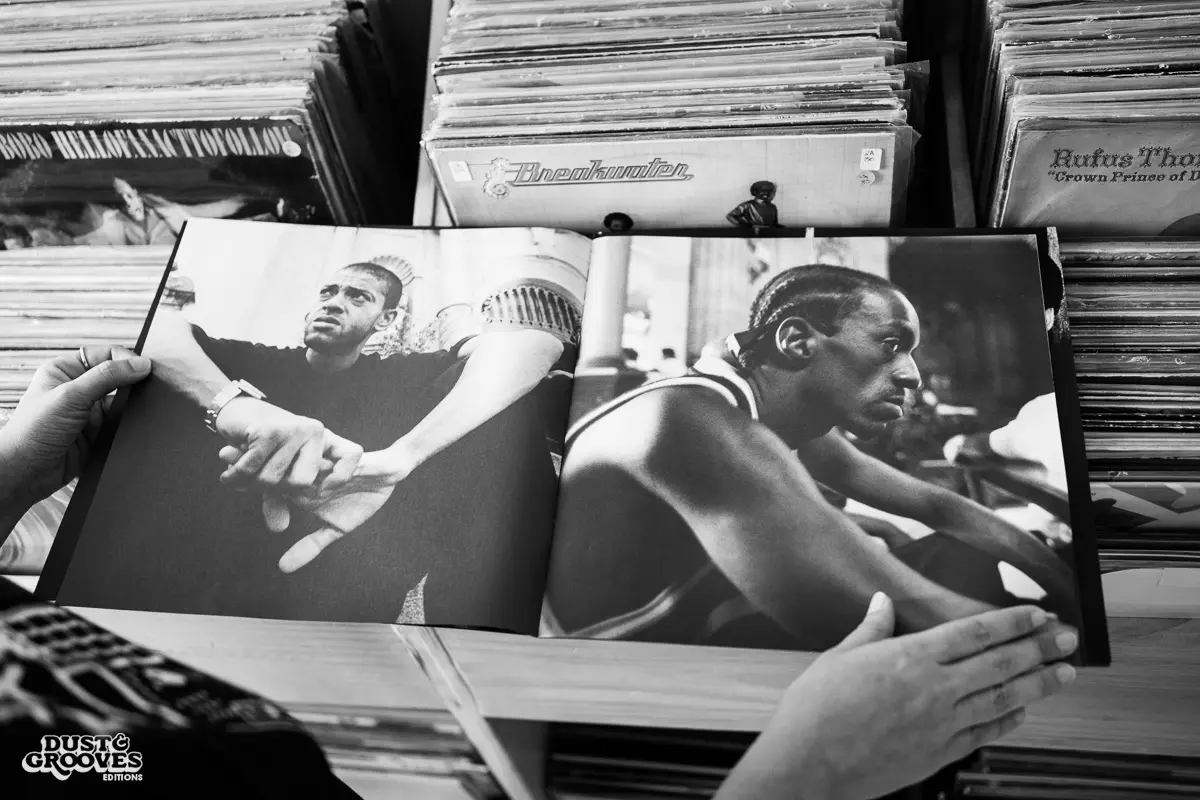
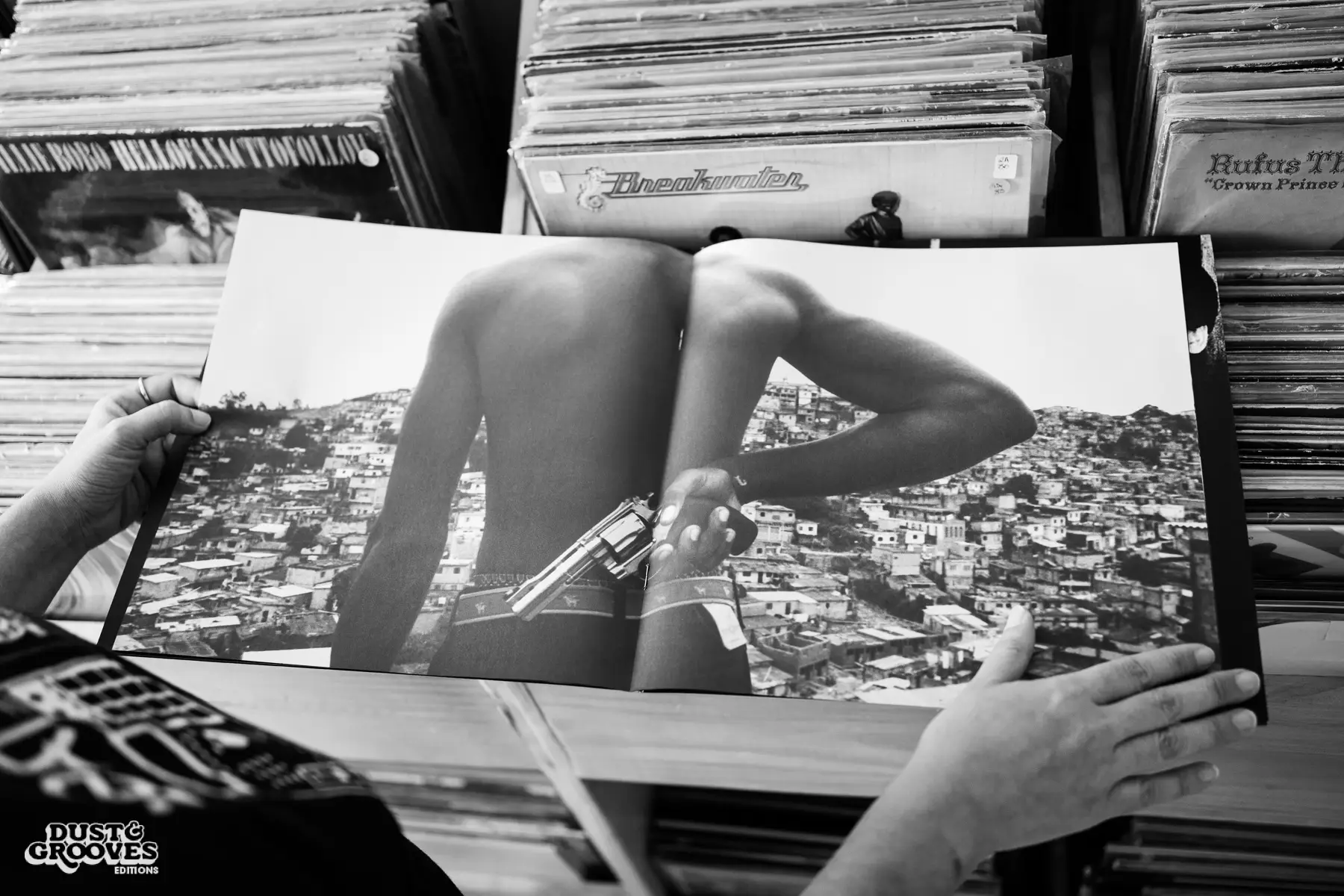
Further Adventures in Record Collecting
Dust & Grooves Vol. 2
Rafa Jazz and 150 other collectors are featured in the book Dust & Grooves Vol 2: Further Adventures in Record Collecting.
Where do you like to dig in São Paulo?
In São Paulo, the best place to dig is downtown, where many stores and used bookstores with all kinds of records exist. I really like going to Nostalgia. There’s a lot of funk, soul, and disco with loads of promos and imports. I always leave there happy. Promo Only is another one I enjoy—they always have lots of cool stuff. Outside the downtown circuit, there is Patuá Discos, which offers a great atmosphere, good conversations, and quality digging.
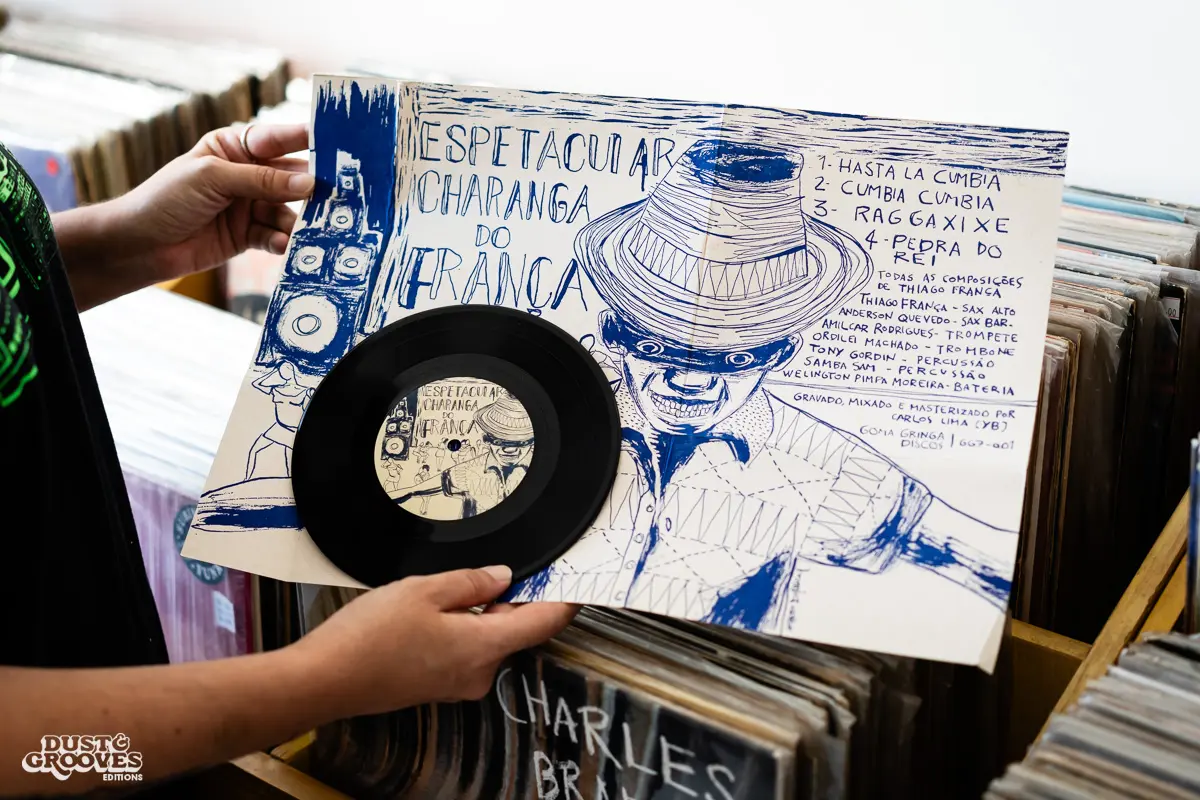
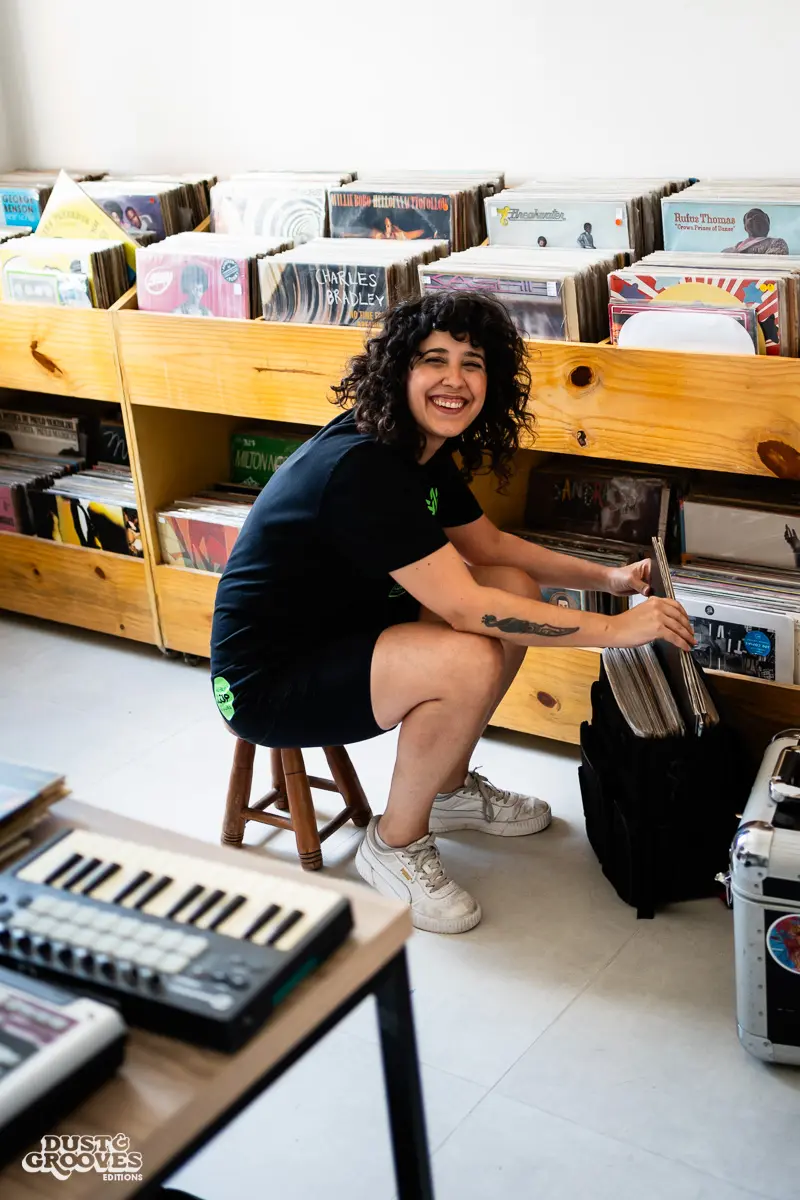
“Records have brought many wonderful things into my life... my partner Bob G, many friends, and numerous projects that fulfill me.”
Rafa Jazz Tweet
You are also a producer. How does your research and record collecting relate to your productions?
As a beatmaker, the records I sample are very different from the records I play as a DJ. I usually sample quieter songs with long intros. The origins of the sample don’t matter to me. It’s more the vibe that counts. There are records that when I hear them, I think, “This one is for sampling,” and automatically, my head starts to think of ideas on how to reframe the sample for a new track.
Tell me about some of your production work. What styles do you work in? What kind of gear are you using, and where can folks hear what you’re doing?
I’ve got the beat tape that I did, and I’ve also signed some tracks to a few projects I was invited to participate in. I recently remixed the song “Da Menina” by Tulipa Ruiz and contributed to the album Jazzy Beats Vol 3, which São Paulo hip-hop legend DJ Hum produced. It’s the first record on vinyl here in Brazil that has instrumental beats made by women–in this case, me and B No Beat. My newest release is out on Selo Vitrine, a remix of the song “Fluxos” by the jazz artist Vanessa Ferreira.
I move back and forth between two main styles: the downtempo lo-fi beats and house-tinged dance tracks. What I’m doing depends significantly on the project I’m participating in or the vibe of the sample I’m flipping. In the studio, I primarily use two different tools in my productions. The Roland SP-555 sampler works as a stand-alone and has some powerful filters. I also use Ableton Live, which is excellent for making remixes and edits.
All my official releases are available on all the big streaming platforms, and I share my unreleased beats on my SoundCloud.
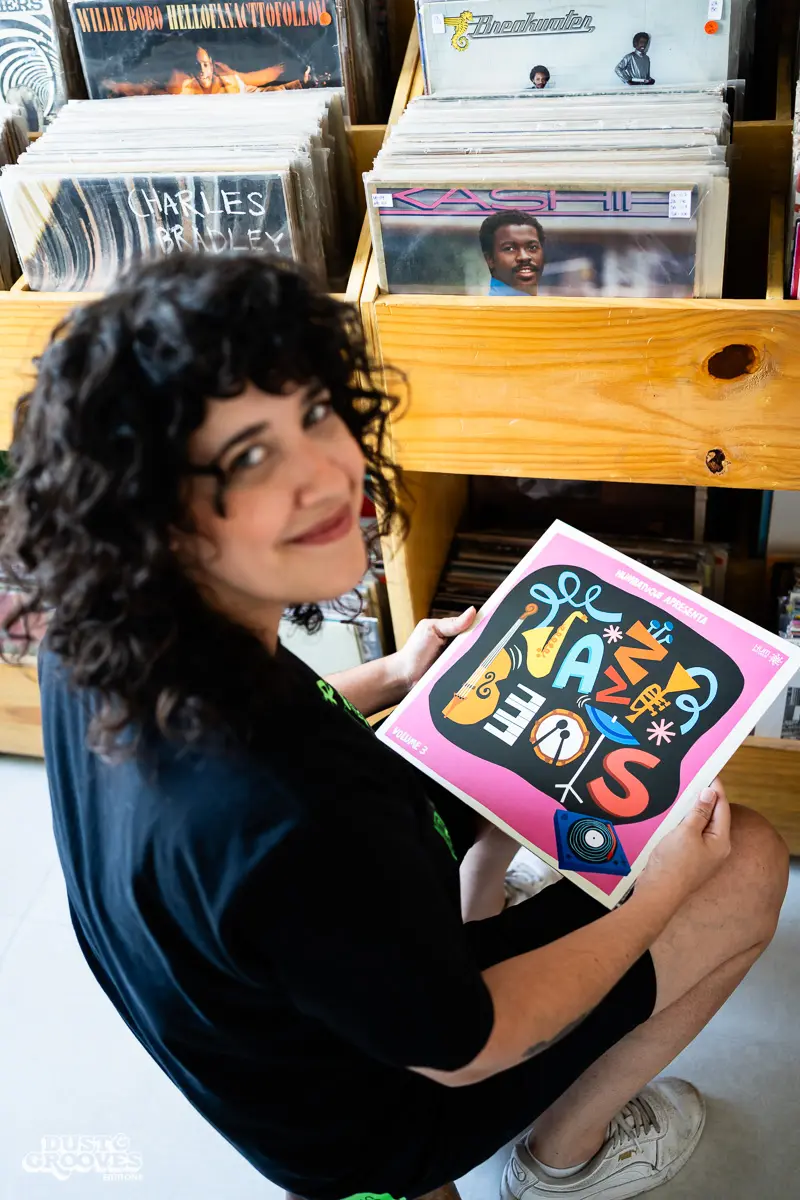
“When I was invited to contribute to Jazzy Beats Vol. 3, I was overjoyed. I thought it was important for the album to include female producers."
Rafa Jazz Tweet
You’ve been involved in some great reissues. Can you tell me a bit more about what you’ve been up to on the label side?
As I mentioned, there’s our Brasilis Grooves label, which throughout its history has re-released some classics of Brazilian music, such as Di Melo’s Self-titled album and Noriel Vilela’s Eis O “Ôme.” We’ve also released some great current artists, such as Max de Castro, BiD, and André Sampaio, among others.
Bob G does the recording at the Vinyl Lab, where we began releasing artists through lo-fi records, which were handcrafted and lathe-cut. With exclusive artwork on the back of the records, these became instantly collectible. After upgrading our equipment, we started making hi-fi records and re-releases of other artists, sometimes in partnership with big brands.
I also have some records I’ve cut of my own productions or from other DJs just to be able to include them in my DJ sets.
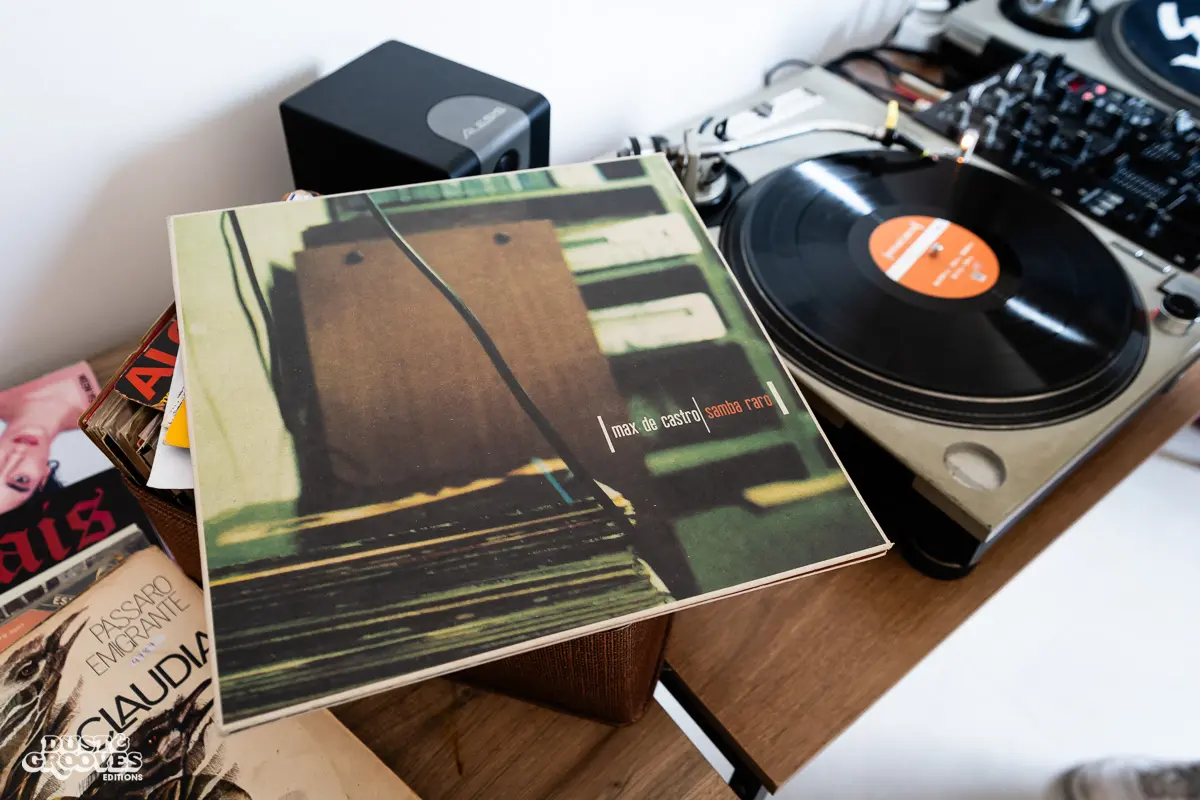
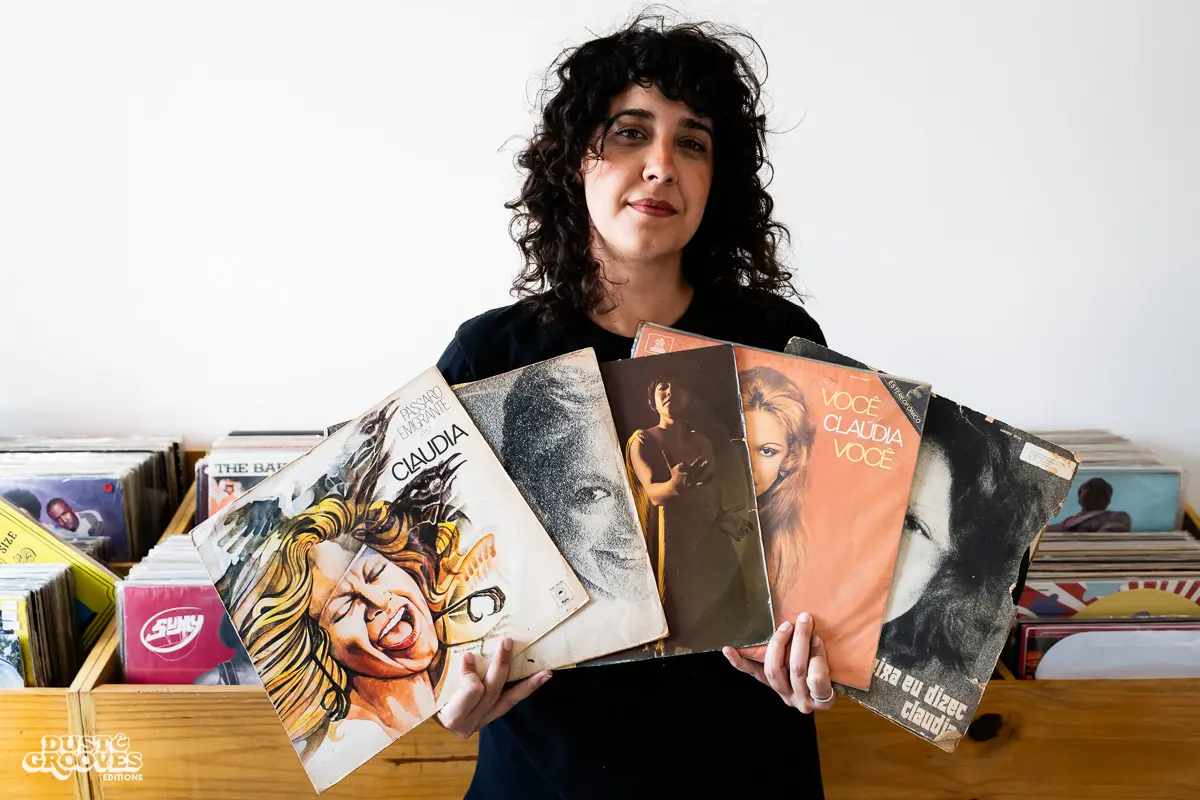
How did collecting records change your life?
Records have brought many wonderful things into my life… my partner Bob G, many friends, and numerous projects that fulfill me.
Who would you next like to see on Dust & Grooves?
I have a few answers for this. Firstly, Bob G—a researcher and DJ focused on Brazilian music; his father was part of a sound system in the ‘70s/‘80s and currently has a dubplate record label. Yellow P—collector and DJ behind the Dubversion sound system, the oldest in São Paulo; Tata Ogan—DJ and record collector born in Niterói and very important in the local scene in RJ.
Rafa Jazz has dipped her toes in many spaces in the Brazilian DJ scene. Outside of being a resident DJ at Seen São Paulo, she is half of Cremosa Vinil, and helps run Beat Brasilis.
Cremosa Vinil
Beat Brasilis
Further Adventures in Record Collecting
Dust & Grooves Vol. 2
Rafa Jazz and 150 other collectors are featured in the book Dust & Grooves Vol 2: Further Adventures in Record Collecting.
Become a member or make a donation
Support Dust & Grooves
Dear Dust & Groovers,
For over a decade, we’ve been dedicated to bringing you the stories, collections, and passion of vinyl record collectors from around the world. We’ve built a community that celebrates the art of record collecting and the love of music. We rely on the support of our readers and fellow music lovers like YOU!
If you enjoy our content and believe in our mission, please consider becoming a paid member or make a one time donation. Your support helps us continue to share these stories and preserve the culture we all cherish.
Thank you for being part of this incredible journey.
Groove on,
Eilon Paz and the Dust & Grooves team


